How homeschooling 'pods' might just make education inequality worse

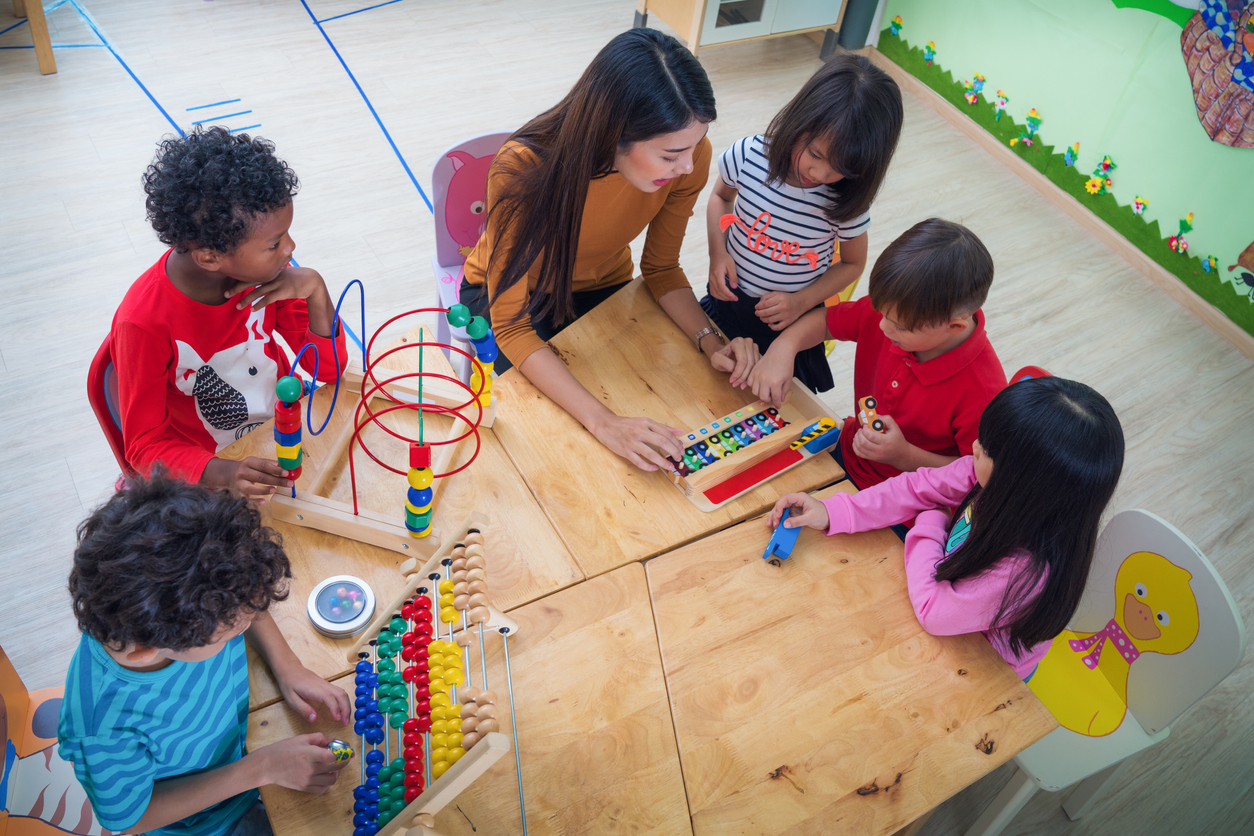
A free daily email with the biggest news stories of the day – and the best features from TheWeek.com
You are now subscribed
Your newsletter sign-up was successful
Parents can't keep watching their stuck-at-home children forever, but they also don't want to send them back to school in a pandemic.
That impossible dilemma has led many parents to start forming homeschooling pods and even hire private teachers to come to their homes. But that's only an option for families that can afford it and, if it becomes a widespread and legitimate option this fall, it may only make education inequality even worse, Forbes reports.
These learning pods have popped up as options both in areas that won't reopen schools right away and in those that will. After all, with Missouri Gov. Mike Parson (R) saying Friday that kids "have got to get back to school," even "if they do get COVID-19, which they will," it's no wonder some parents are trying to come up with something safer.
The Week
Escape your echo chamber. Get the facts behind the news, plus analysis from multiple perspectives.

Sign up for The Week's Free Newsletters
From our morning news briefing to a weekly Good News Newsletter, get the best of The Week delivered directly to your inbox.
From our morning news briefing to a weekly Good News Newsletter, get the best of The Week delivered directly to your inbox.
But Will Huntsbury of the Voice of San Diego — where schools aren't reopening this fall — argues "pods are almost like a 200-year leap backward in history." Watching prerecorded video lessons is no substitute for in-person instruction, "but it's also obvious that creating a pod takes resources" some families just don't have. "The segregation of our neighborhoods and friend groups will not help the situation," he continues.
European schools that have reopened have adopted the pod learning style, but with a twist. Children return to their schools, alleviating parents of their child care responsibilities, but stay in smaller classes of about a dozen students and don't mingle with others. American experts have said these kinds of pods are essential to stem COVID-19 spread as well. Still, they acknowledge reopening isn't possible everywhere, to the continued detriment of students without internet or parents who can devote time to teaching.
A free daily email with the biggest news stories of the day – and the best features from TheWeek.com
Kathryn is a graduate of Syracuse University, with degrees in magazine journalism and information technology, along with hours to earn another degree after working at SU's independent paper The Daily Orange. She's currently recovering from a horse addiction while living in New York City, and likes to share her extremely dry sense of humor on Twitter.
-
 The EU’s war on fast fashion
The EU’s war on fast fashionIn the Spotlight Bloc launches investigation into Shein over sale of weapons and ‘childlike’ sex dolls, alongside efforts to tax e-commerce giants and combat textile waste
-
 How to Get to Heaven from Belfast: a ‘highly entertaining ride’
How to Get to Heaven from Belfast: a ‘highly entertaining ride’The Week Recommends Mystery-comedy from the creator of Derry Girls should be ‘your new binge-watch’
-
 The 8 best TV shows of the 1960s
The 8 best TV shows of the 1960sThe standout shows of this decade take viewers from outer space to the Wild West
-
 Penn wipes trans swimmer records in deal with Trump
Penn wipes trans swimmer records in deal with Trumpspeed read The University of Pennsylvania will bar transgender students from its women's sports teams and retroactively strip a trans female swimmer of her titles
-
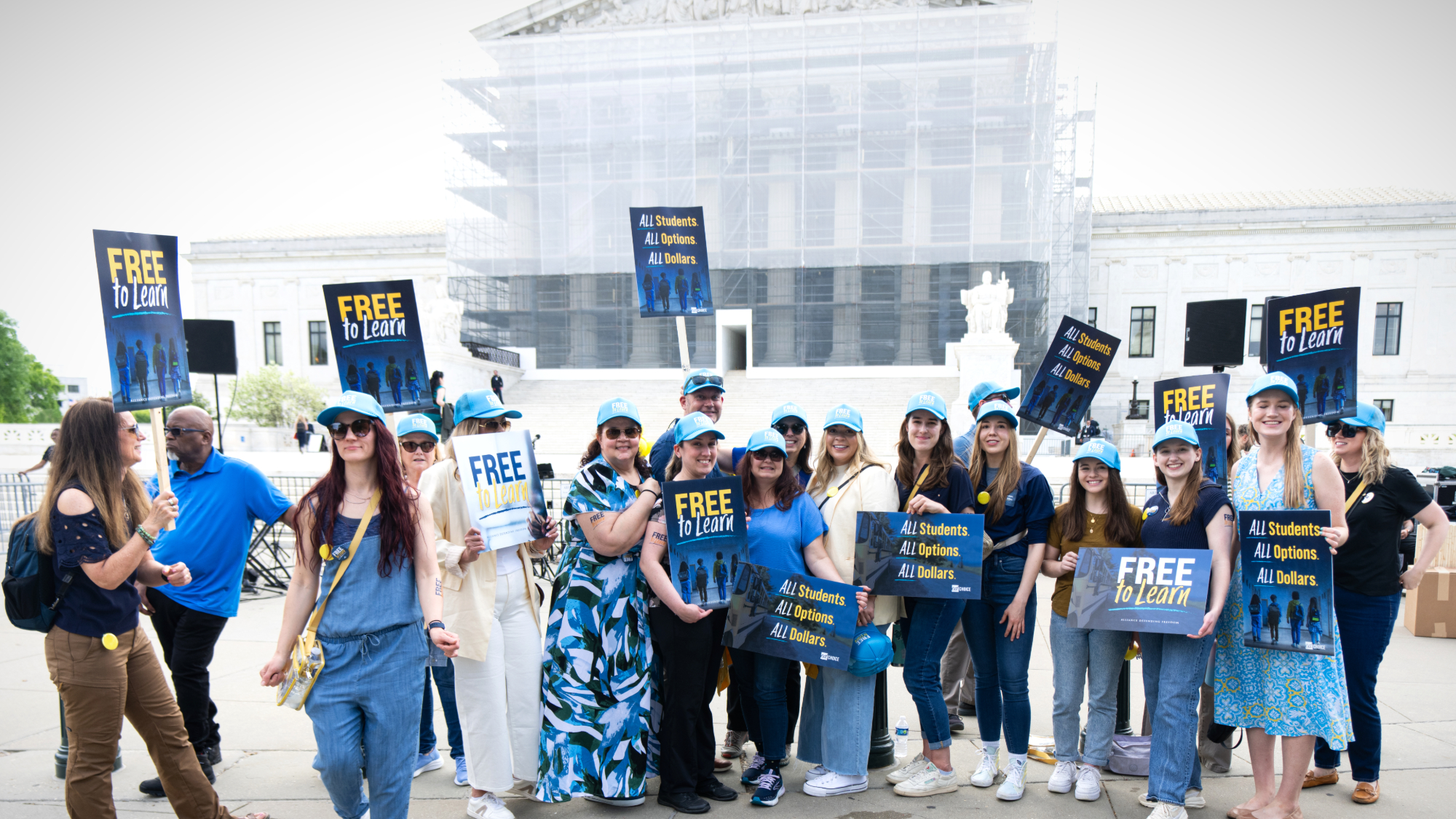 Supreme Court may bless church-run charter schools
Supreme Court may bless church-run charter schoolsSpeed Read The case is 'one of the biggest on church and state in a generation'
-
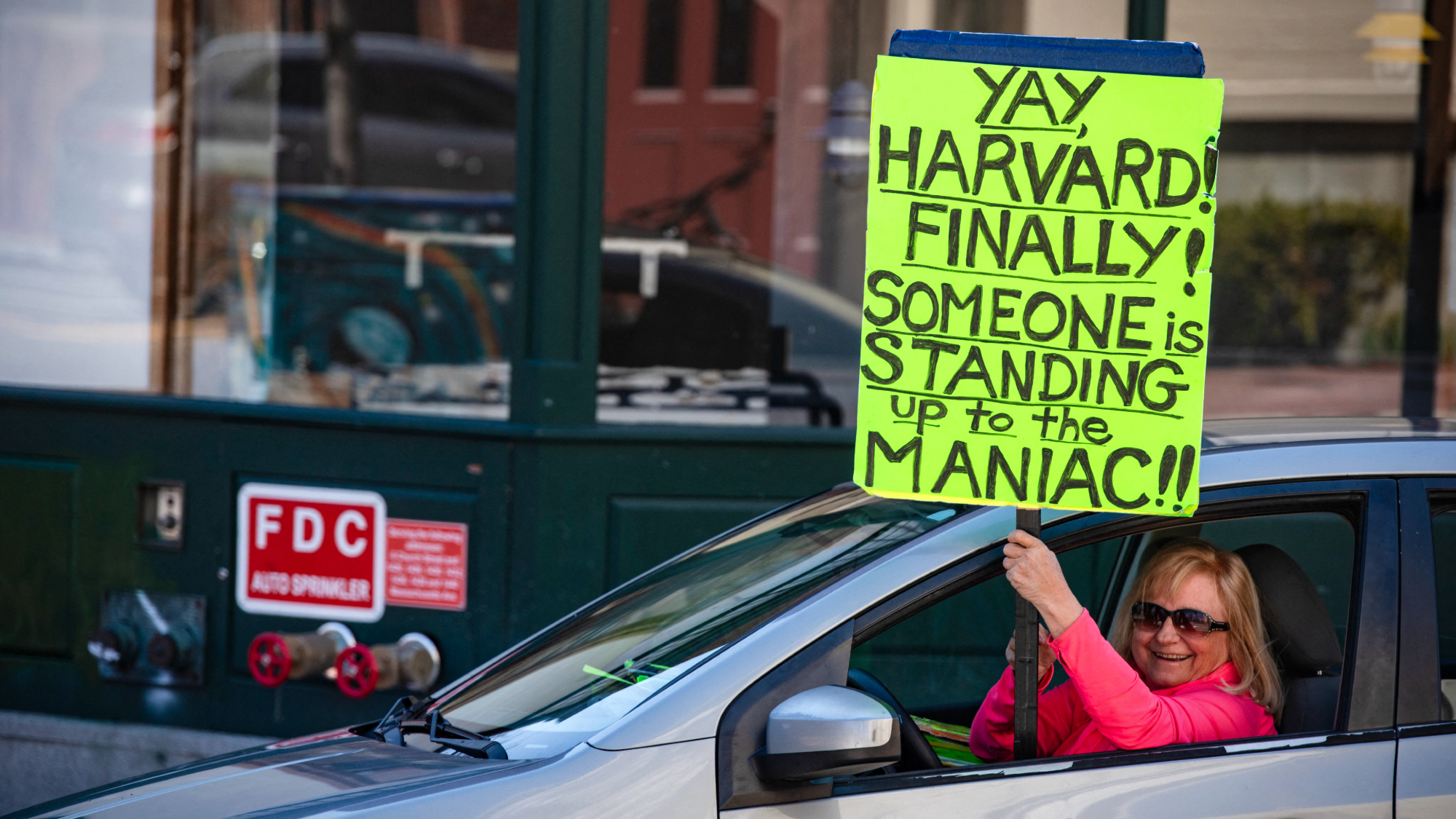 Harvard sues Trump over frozen grant money
Harvard sues Trump over frozen grant moneySpeed Read The Trump administration withheld $2.2 billion in federal grants and contracts after Harvard rejected its demands
-
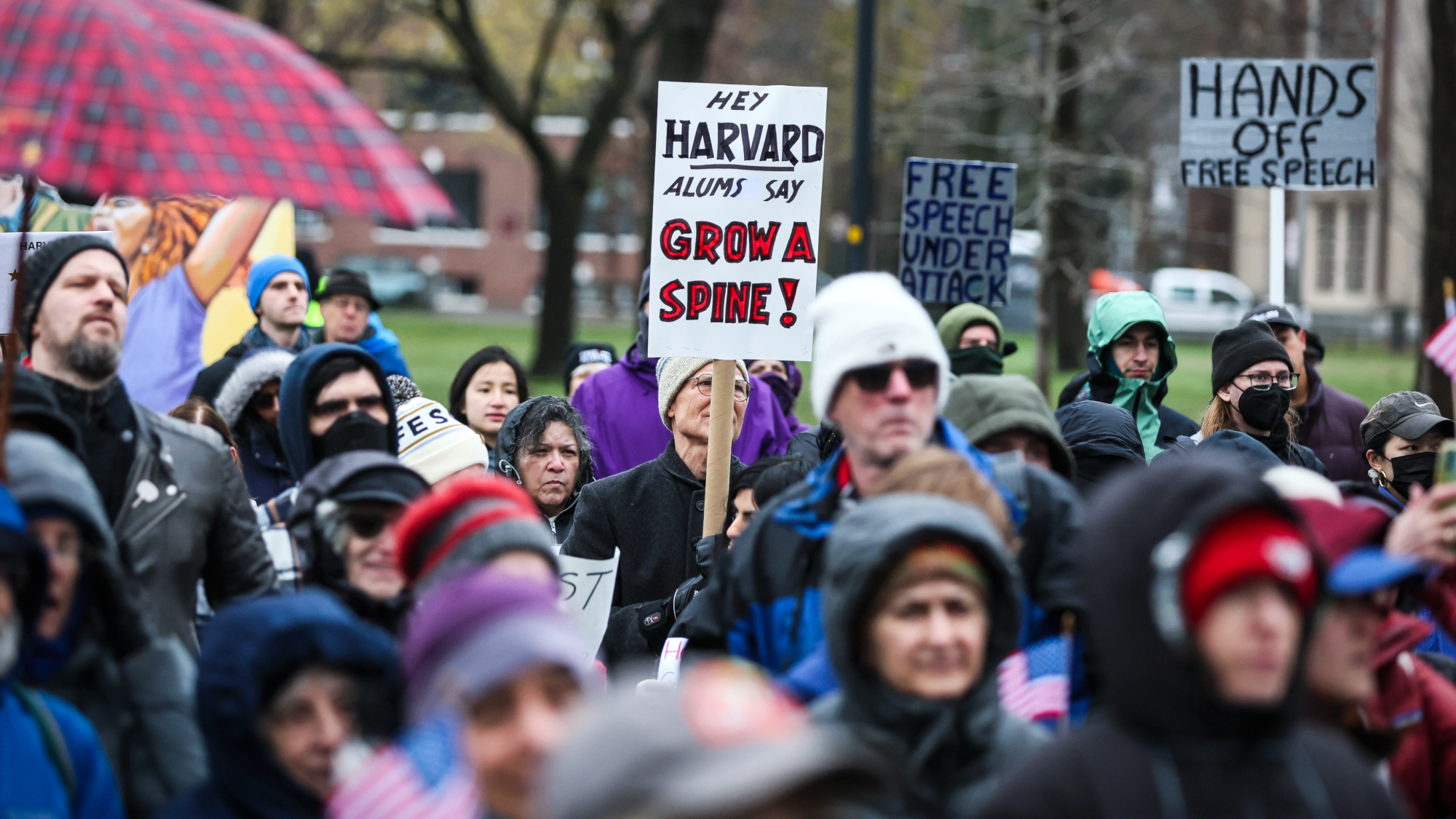 Harvard loses $2.3B after rejecting Trump demands
Harvard loses $2.3B after rejecting Trump demandsspeed read The university denied the Trump administration's request for oversight and internal policy changes
-
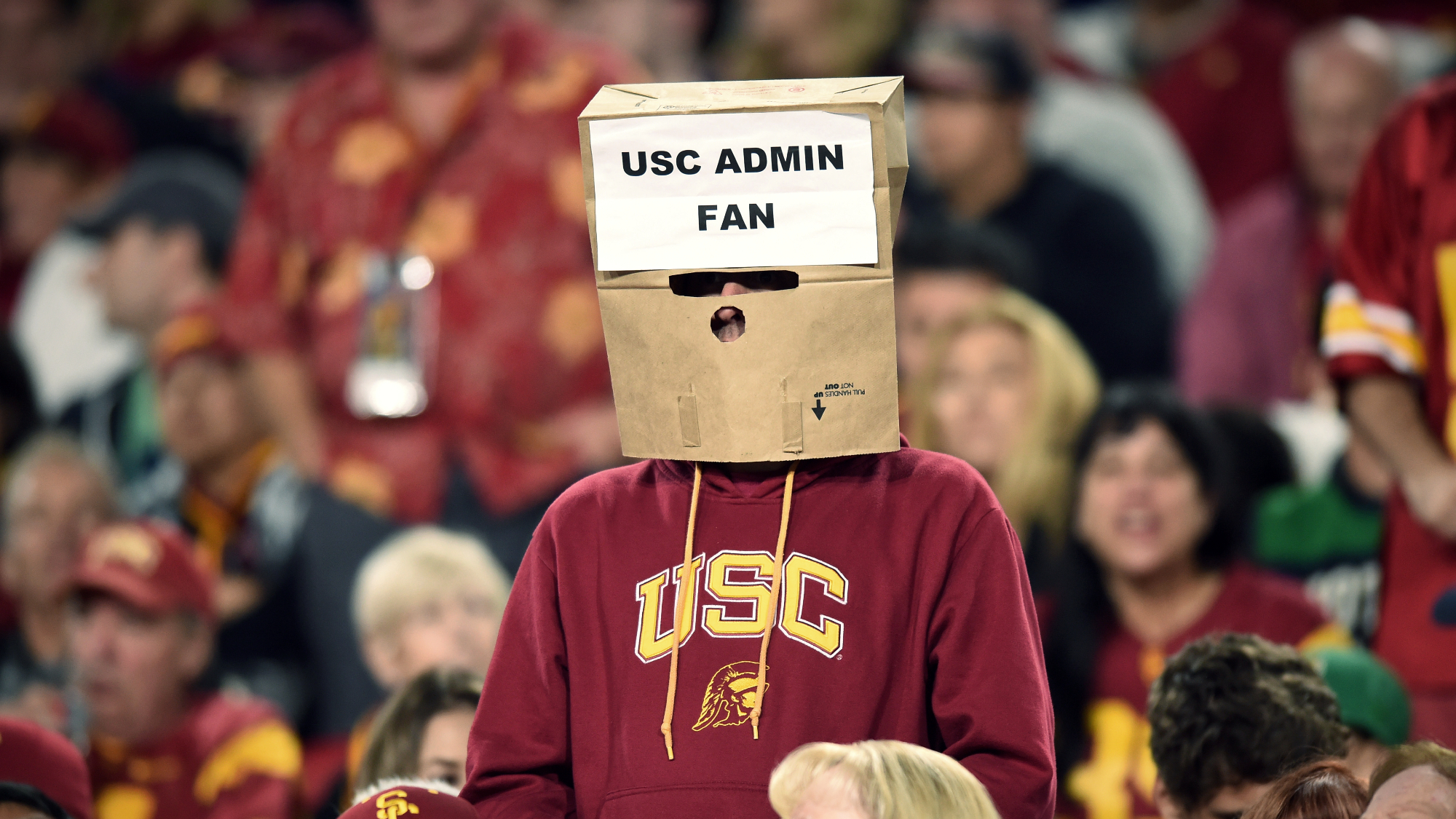 USC under fire for canceling valedictorian speech
USC under fire for canceling valedictorian speechSpeed Read Citing safety concerns, the university canceled a pro-Palestinian student's speech
-
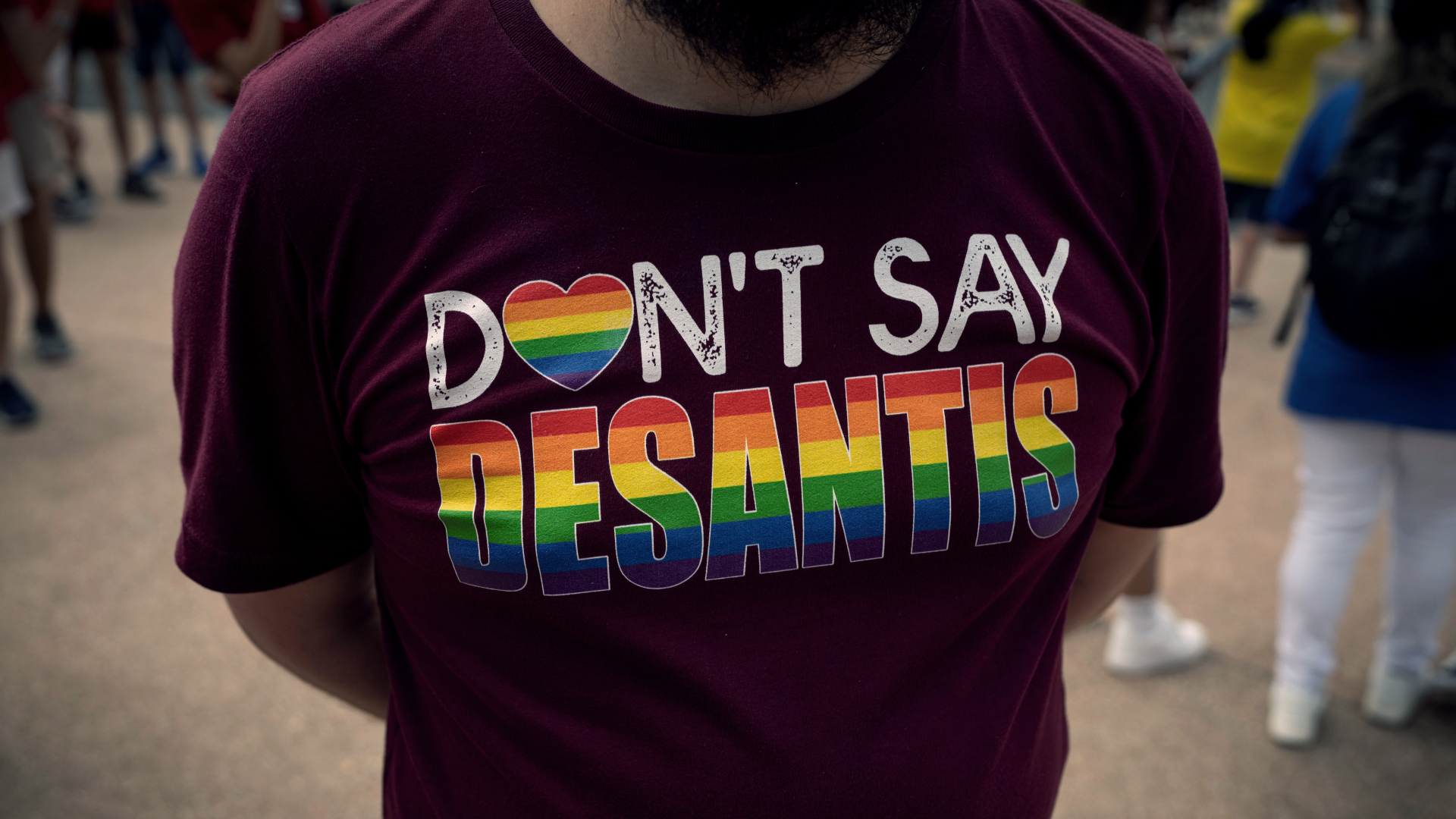 Florida teachers can 'say gay' under settlement
Florida teachers can 'say gay' under settlementspeed read The state reached a settlement with challengers of the 2022 "Don't Say Gay" education law
-
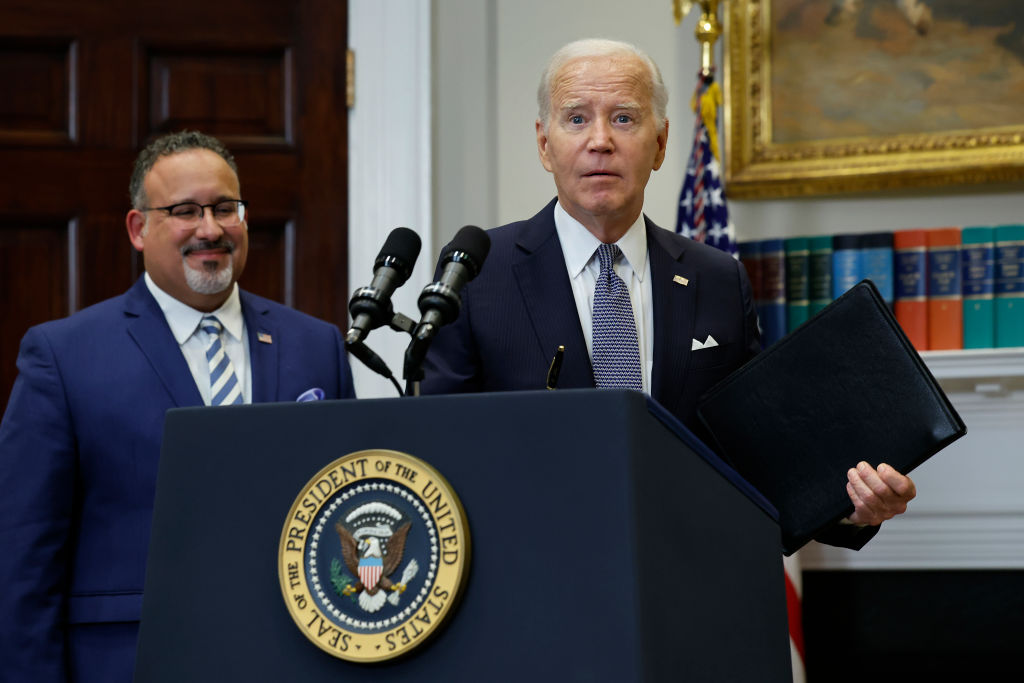 Biden administration to forgive $39B in student loan debt for 800K borrowers
Biden administration to forgive $39B in student loan debt for 800K borrowersSpeed Read
-
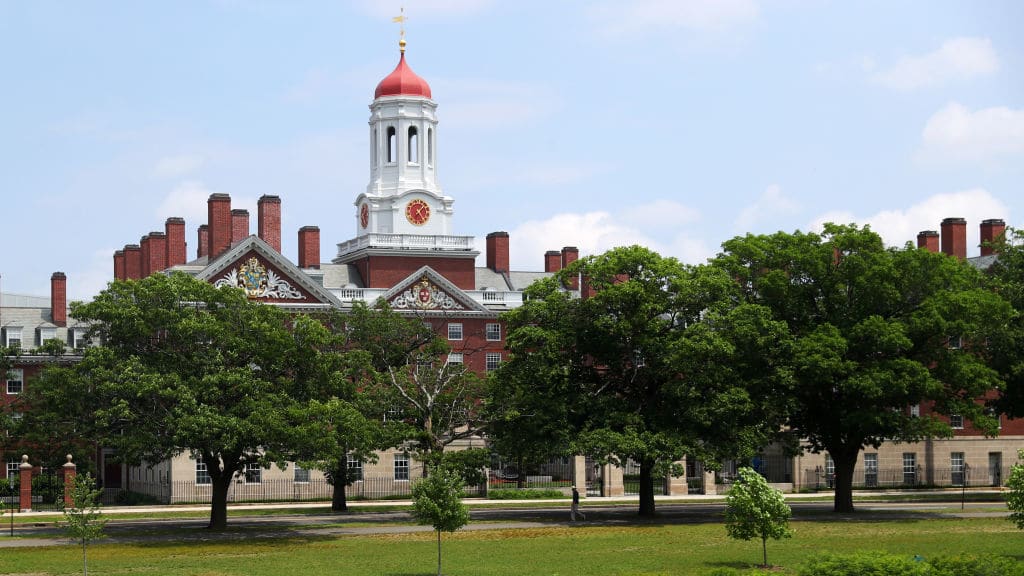 Advocacy groups challenge Harvard's legacy admissions policy
Advocacy groups challenge Harvard's legacy admissions policySpeed Read
